Healthy eating myths that aren't true
Healthy eating myths, debunked
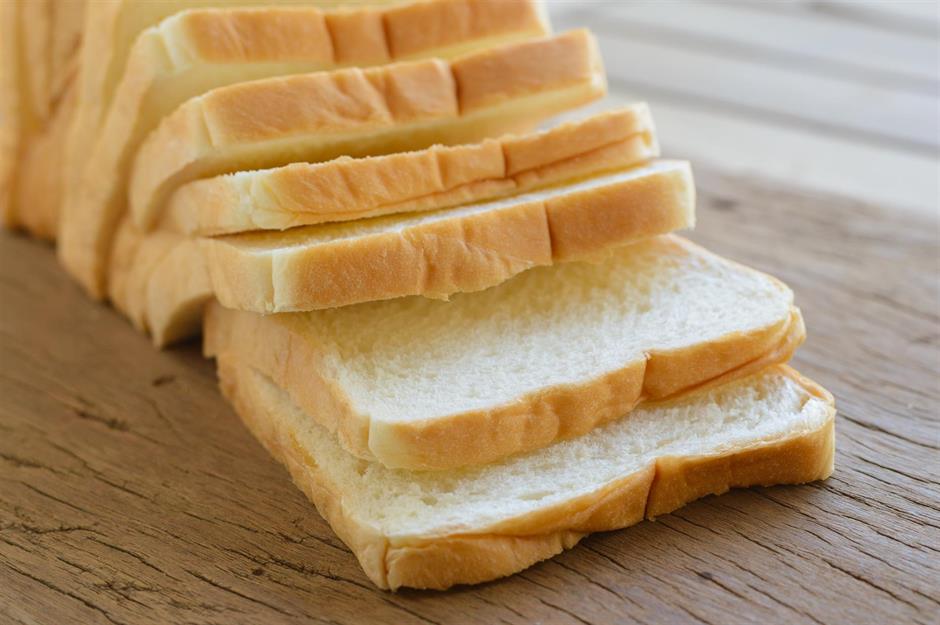
There’s all sorts of advice aimed at people trying to eat more healthily and stay in shape – but some of the healthy eating opinions presented as fact are actually misleading, outdated or just plain wrong. To set the record straight, we've rounded up a mob of healthy eating myths that need to be put to rest for good.
Click or scroll through our gallery to discover the healthy eating myths that simply aren't true.
Myth: there's a right way to eat
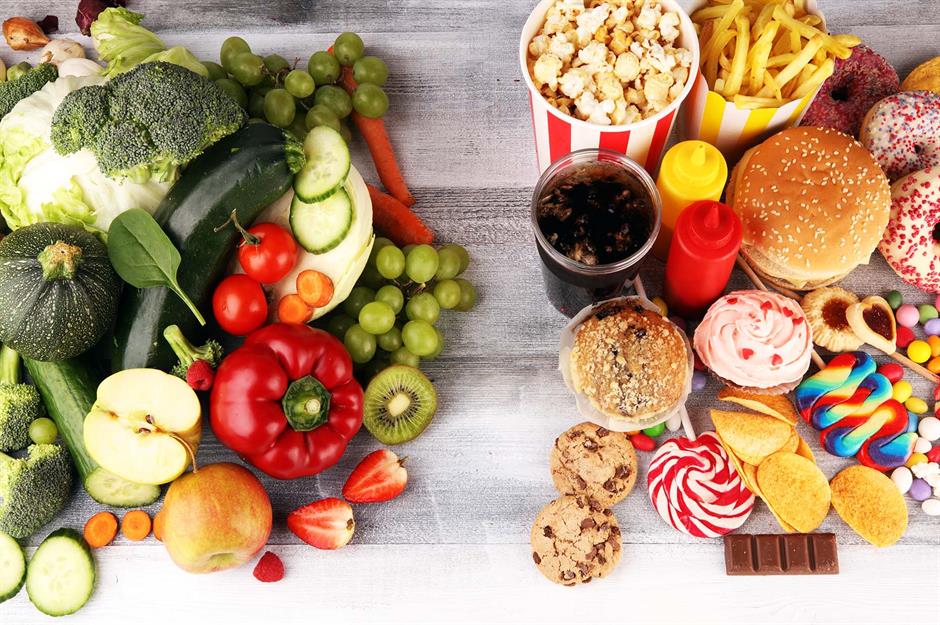
There isn’t really a one-size-fits-all diet to suit everyone; in fact, a 2019 study by King's College London showed that different people have totally unique blood sugar and insulin responses to common foods such as bananas, muffins and bread. That said, people living in the world's blue zones – areas with lower rates of chronic diseases and longer-than-average life expectancies – are known for eating diets that are largely plant based, indicating that fruits and vegetables really do have their benefits.
Myth: your 'five a day' is based on hard science
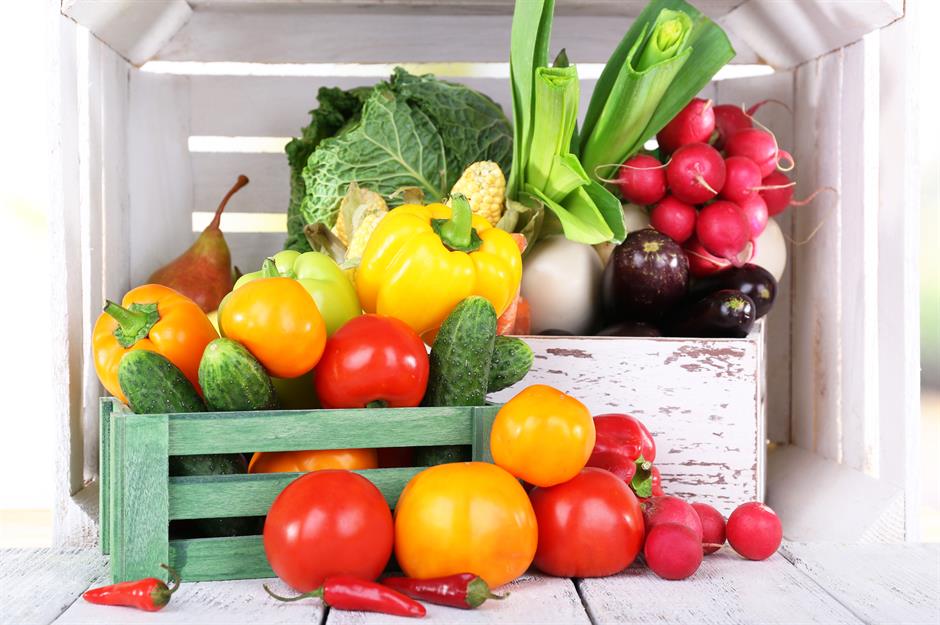
The World Health Organisation (WHO) recommends that individuals should eat at least 14oz (400g) of non-starchy fruits and vegetables –equating to around five portions per day. This isn't, however, based on any hard science. Instead, it's an achievable guideline for those wanting to pursue a healthy lifestyle – and many nutritionists believe we should ideally be eating more than that. The WHO also states that 11% of heart disease deaths, and 14% of gastrointestinal cancer deaths, are linked to diets consisting of too few fruits and vegetables, which stands as further evidence that we should all strive to eat our fair share.
Myth: chocolate gives you spots

Acne is mostly caused by hormones and the effect they have on sebaceous glands in the skin – not by a person's diet. A poor diet that consists of lots of refined carbohydrates (which tend to spike blood sugar) may contribute to acne by increasing the body's production of spot-triggering hormones. However, contrary to popular belief, there's no evidence that links eating chocolate with developing spots.
Myth: you shouldn't chew (or swallow) gum
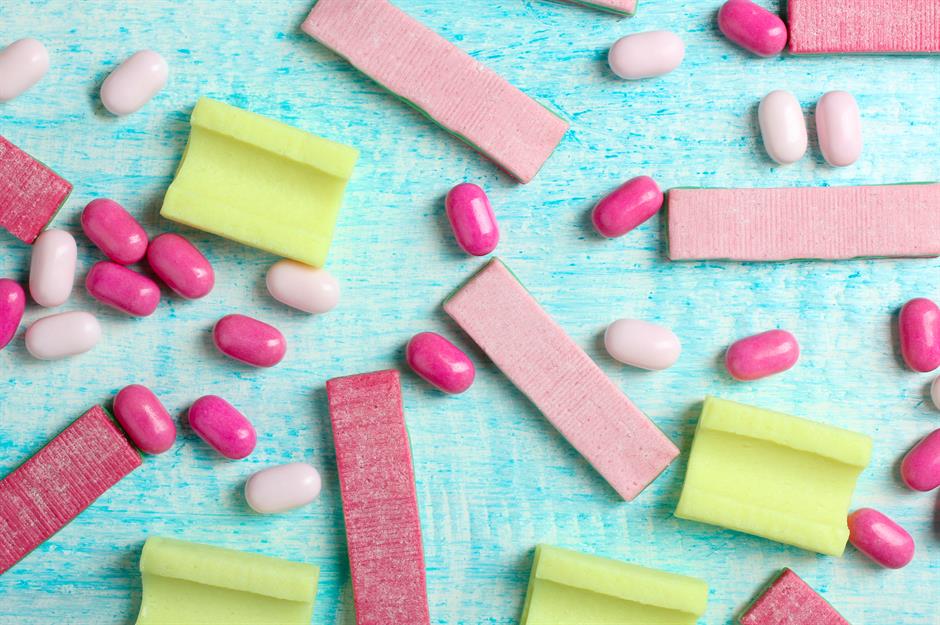
Good news, gum lovers – you can continue to get your minty fix without impacting your health. Not only has chewing xylitol gum been proven to be good for your teeth, but there's also no need to worry about swallowing it by accident. You shouldn't do it on purpose, and gum can pose a choking hazard for small children. But suggestions that it sits, undigested, in your stomach are completely unfounded. When consumed, gum simply passes through your digestive tract at the same pace as any other food.
Myth: spinach is the ultimate iron powerhouse
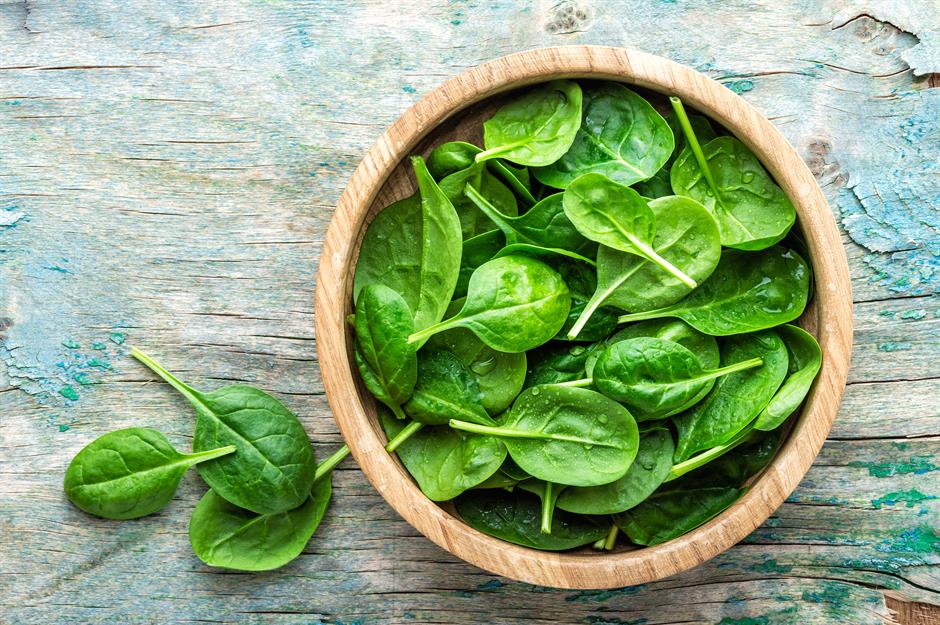
When scientists first analysed the nutritional value of spinach, they made a mistake, overestimating the quantity of iron it contained. However, although it's not as iron-rich as originally believed, the leafy green is still a decent source of the mineral: a 3oz (90g) serving of boiled spinach will deliver 10% of your recommended daily amount. That said, it's been noted that iron is far less well-absorbed by our bodies when it comes from plants rather than animal sources.
Myth: only water hydrates you properly
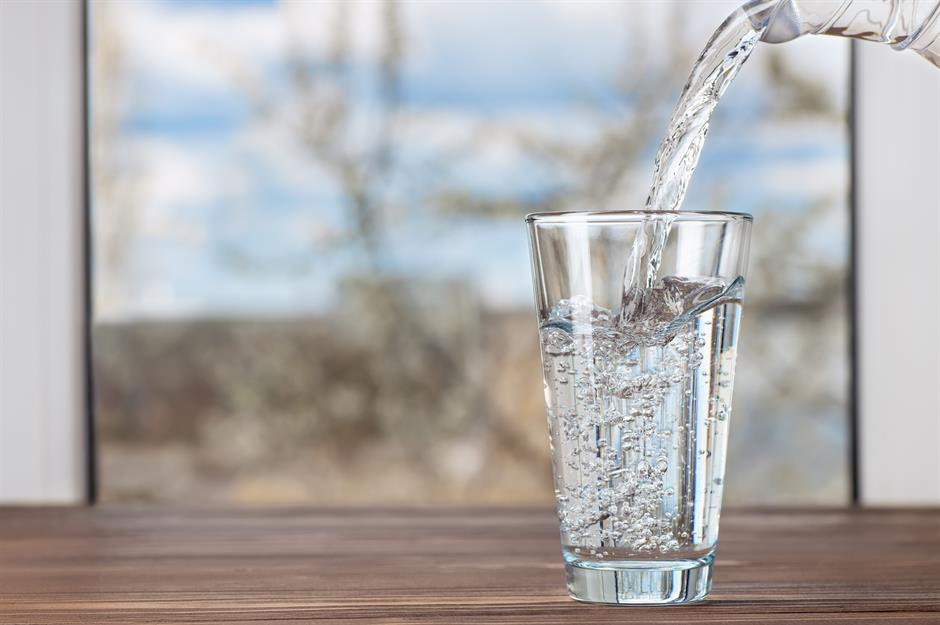
It's not just pure water that will keep you hydrated; the water in tea, coffee, soft drinks and juices will do the job, too, as will the fluid contained in high-water foods like fruit and vegetables. Not only that, but research shows that regular coffee drinkers needn't worry about the caffeine in their favourite brew being a diuretic, either; in one controlled study, it was shown to have no effect on hydration.
Myth: coffee is bad for you
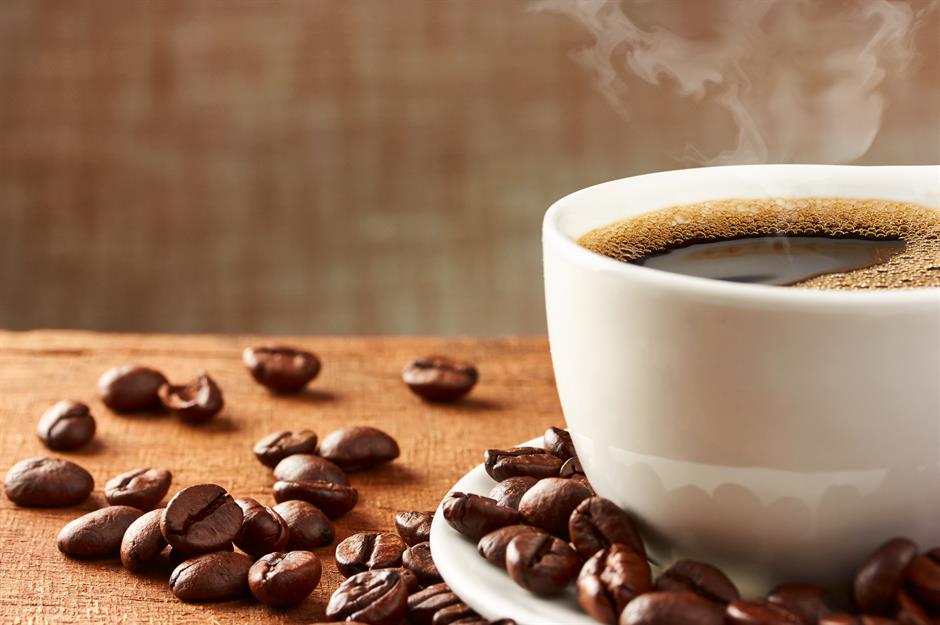
Speaking of coffee, it’s not true that it's a carcinogen, as nutritionists once thought. In fact, according to the American Institute of Cancer Research, the phytochemicals present in coffee may help reduce the risk of cancer. Happily, this is thought to be the case for both standard and decaffeinated coffee – so you can continue to sip away at your regular morning cup worry-free.
Myth: sugar makes kids hyperactive

It's hard to believe this one isn't true – after all, most of us have paid witness to children bouncing off the walls at parties. However, the idea that sugar causes hyperactivity was disproven back in the 1990s. Researchers say it's all about cognitive bias; in one study, mothers who were told their children had been given a large dose of sugar rated them as significantly more hyperactive, though in reality they had only been given a placebo.
Myth: sugar is the main cause of type 2 diabetes
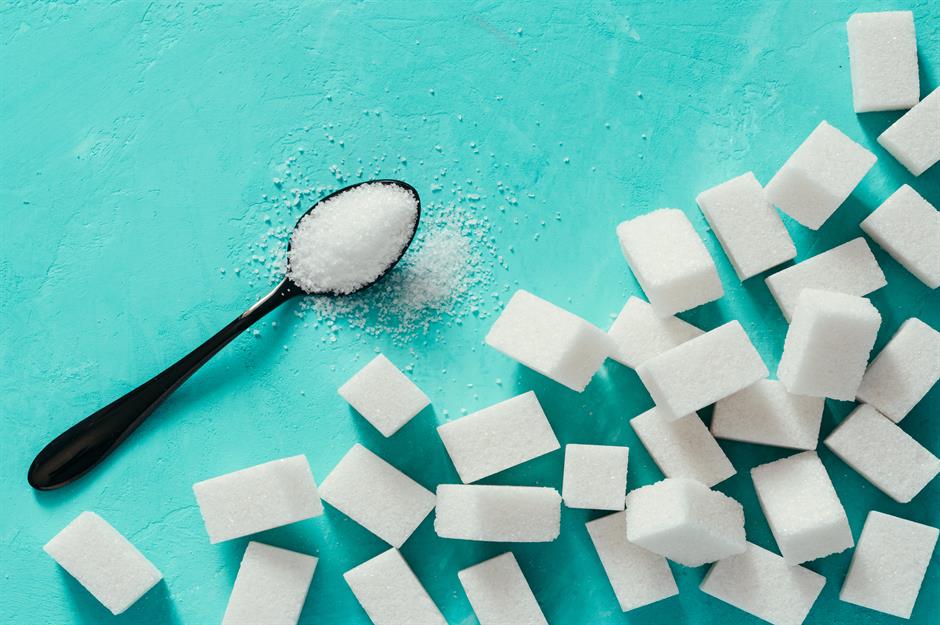
Diabetes UK says that high-sugar foods contribute excess calories to our diets – and it's an excess of calories, rather than plain old sugar itself, that can create the fatty pancreas that leads to people getting type 2 diabetes. However, sugary drinks seem to be linked with diabetes unrelated to their effect on body weight, so they're best consumed in moderation; in any case, it's a good idea to limit your sugar intake for many health-related reasons.
Myth: vitamin C will help to prevent a cold
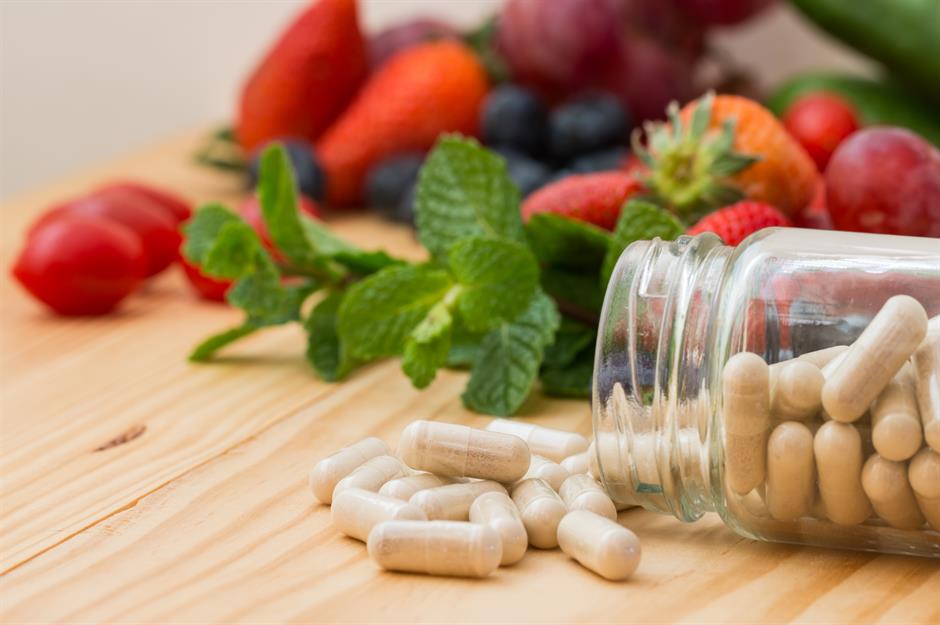
Unfortunately, taking vitamin C supplements won't help to prevent most people from catching colds, according to a comprehensive review. However, it might be of benefit to some people – such as marathon runners, or those undertaking a different form of extreme physical exercise – as putting your body through such stress causes a dip in immune function. Extra vitamin C can help to boost this.
Myth: some cookies contain plasticisers to keep them soft

American-style cookies are soft because of their high fat and moisture content; sugar helps to hold the moisture in, while slight under-baking prevents it from evaporating. It's true that some cookies may contain compounds like glycerine, sorbitol or monoglycerides to retain more moisture, but these are all permitted food additives. Non-food additives – such as the plasticisers used to soften plastic – are not allowed.
Myth: MSG is an unhealthy food additive

While MSG (monosodium glutamate) shouldn't necessarily be needed in well-cooked, flavour-packed dishes, there’s no evidence that it causes so-called 'Chinese restaurant syndrome' (an attack of weakness, palpitations and headaches). In fact, it's more likely that you just ate too much. An aversion to MSG is essentially a form of food snobbery, as it’s the same chemical that's present in fancy, umami-rich foods like Parmesan, porcini mushrooms and bonito flakes.
Myth: there are no plant sources of vitamin D
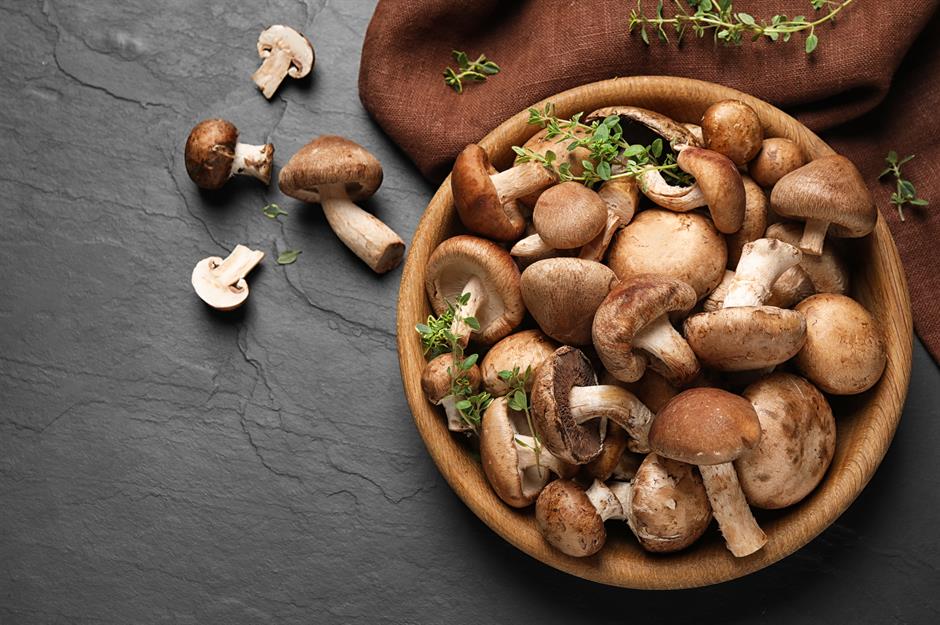
Mushrooms can contain surprising amounts of vitamin D – but only if they've been exposed to sunshine. Some mushrooms come ready UV-treated (in which case it will say that they're enriched with vitamin D on the label), but otherwise, you can give them a boost of the vitamin yourself by leaving them gill-side up near a sunny window for an hour before eating.
Myth: plant-based milk alternatives are healthier
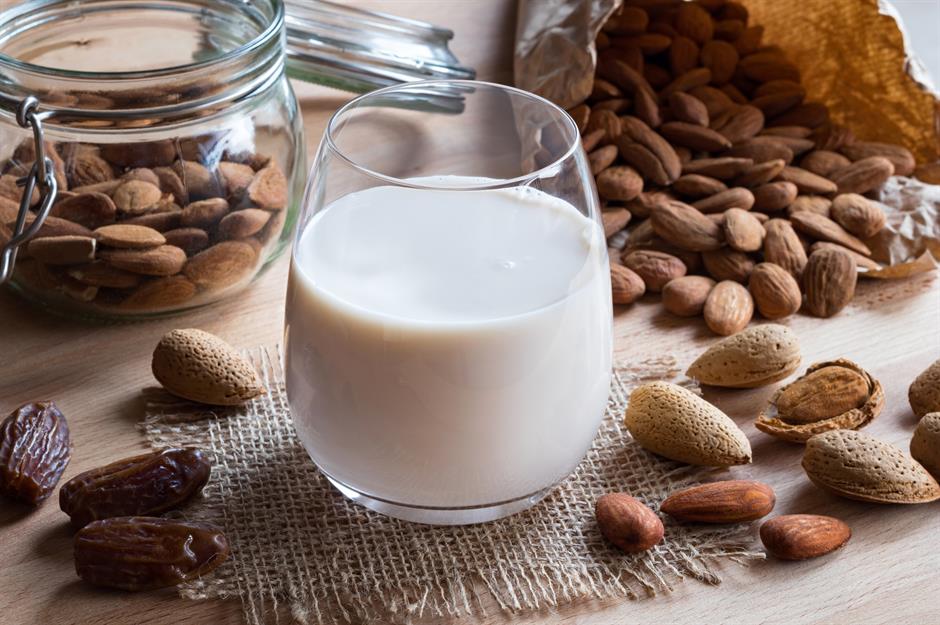
Some plant-based milk alternatives – like oat milk – may be more environmentally friendly, but they aren’t healthier than dairy. In fact, most plant-based milks have a fraction of the protein supplied by dairy milk (though soy milk is an exception) and little or no calcium and vitamin B12 – both of which are found in high quantities in cows’ milk. When choosing plant-based milk alternatives, always check if these nutrients are added.
Myth: canned food is less nutritious
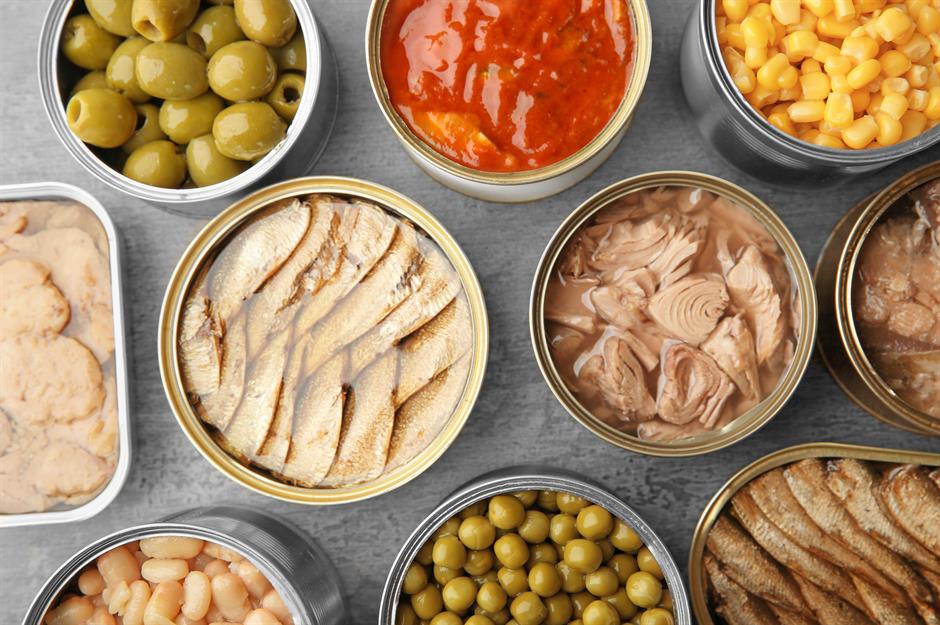
The canning process can reduce the prevalence of some heat-sensitive nutrients (such as vitamin C and folate) – but, once foods are sealed in the can, the levels remain stable until the can is opened. A 2015 study published in the journal Nutrients found that people who consumed more than six canned food items a week had higher intakes of 17 essential nutrients, including potassium, calcium and fibre, than those who ate fewer than two canned food items over the same period of time.
Myth: frozen fruits and vegetables aren’t as good for you
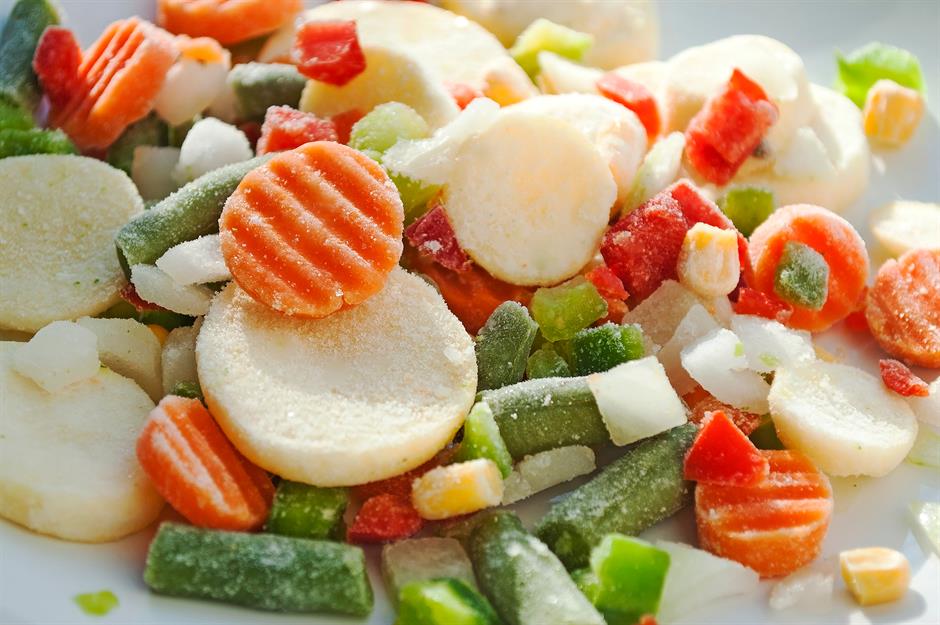
Prior to freezing, fruits and vegetables undergo a blanching process in order to kill enzymes that might cause deterioration, and it's at this stage that they can suffer a small reduction in nutrients. However, as they're processed within hours of being picked – when they're at their nutritional peak – they still compare favourably to fresh versions.
Myth: oranges are the best source of vitamin C
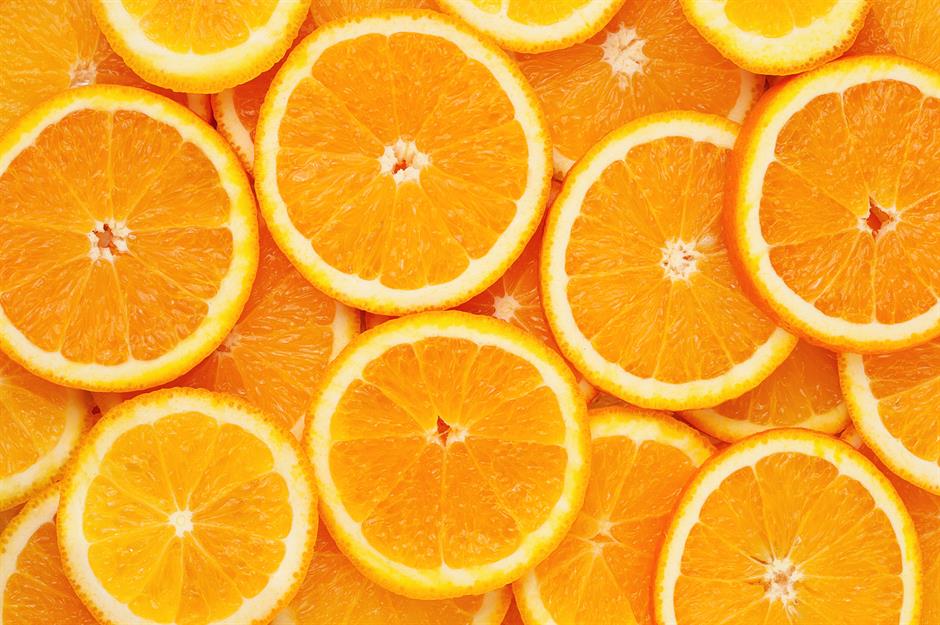
While oranges pack in a decent amount of vitamin C, there are other fruits and vegetables that contain even more. Red, yellow and green peppers all have more than twice as much vitamin C as oranges; in fact, you can get your entire recommended daily amount of the vitamin (80mg) by eating just half a pepper. Brussels sprouts, kale, blackcurrants and strawberries are also all richer sources of vitamin C than oranges.
Myth: white bread is bad for you
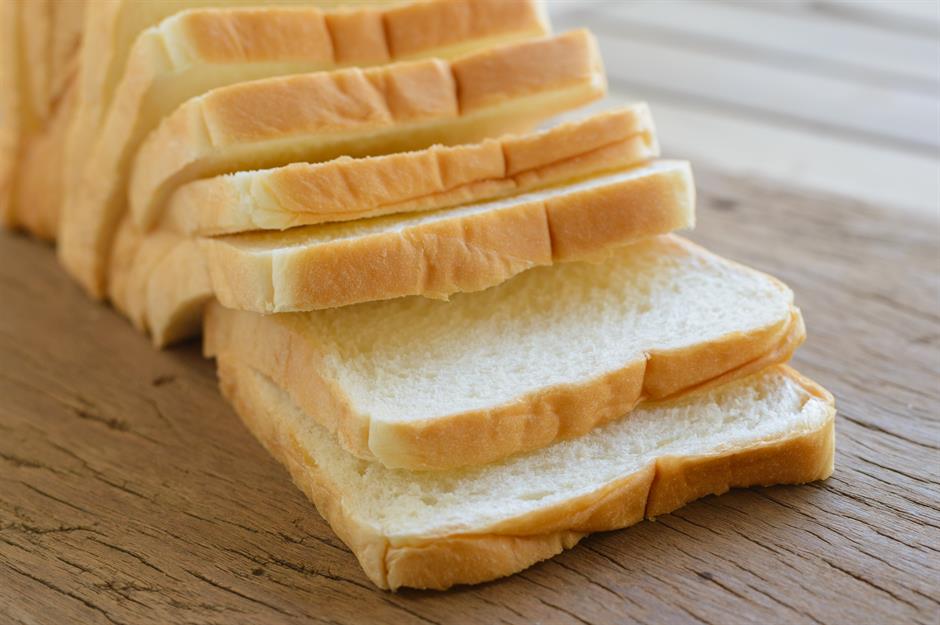
White bread isn't necessarily bad for you – in fact, it contains more calcium than wholemeal bread, with an average of 71mg per slice (versus 42mg in wholemeal). This is because white bread flour is fortified with the mineral to help promote healthy bones, while wholemeal bread flour isn’t. And, though white bread has 65% less fibre than wholemeal, it's still a relatively good source of the nutrient, with roughly the same levels you'd find in a small apple.
Myth: you should eat little and often to boost your metabolism
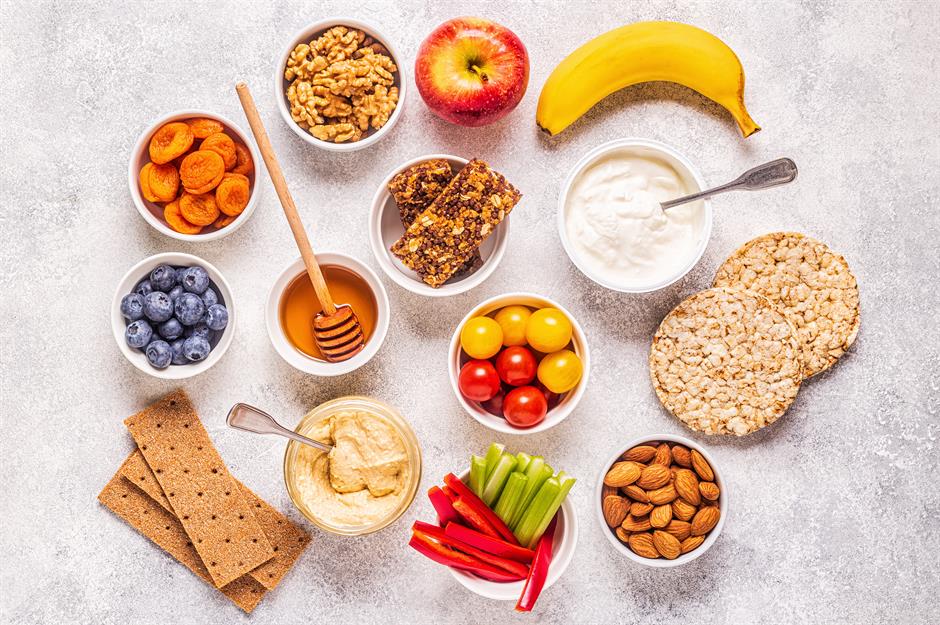
You might be surprised to learn that there's no evidence to support this popular recommendation. In fact, one study found that slimmers who ate a certain number of calories in two meals actually lost more weight than people who spilt the same amount of calories over six meals. Another reason not to graze between breakfast, lunch and dinner? It can be too easy to lose track of what you’re eating, so you may end up consuming more.
Myth: a low-fat diet is bad for you
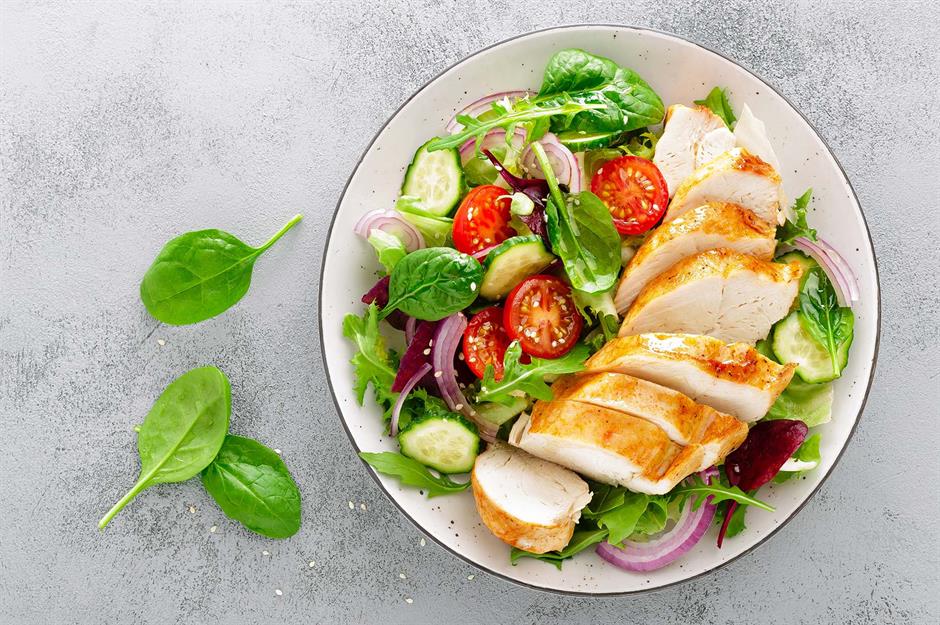
The low-fat diet took a big fall from grace when people realised that processed foods marketed as being low in fat were often higher in sugar. But going low-fat isn’t, in itself, bad. A 2019 follow-up on the Women’s Health Initiative Dietary Modification Trial, which started in 1993, actually found fewer cases of breast cancer deaths and insulin-requiring type 2 diabetes in people pursuing a low-fat diet, with carbs coming from fruit, vegetables and grains.
Now discover 23 surprisingly healthy foods, from chips to chocolate
Last updated by Jessica Morris.
Comments
Be the first to comment
Do you want to comment on this article? You need to be signed in for this feature